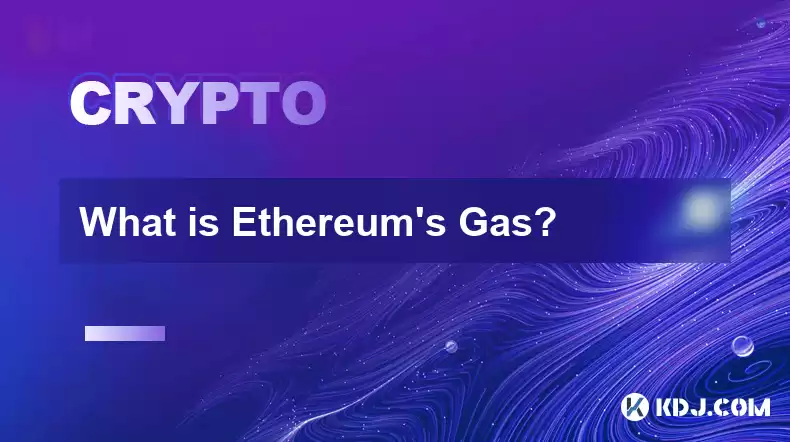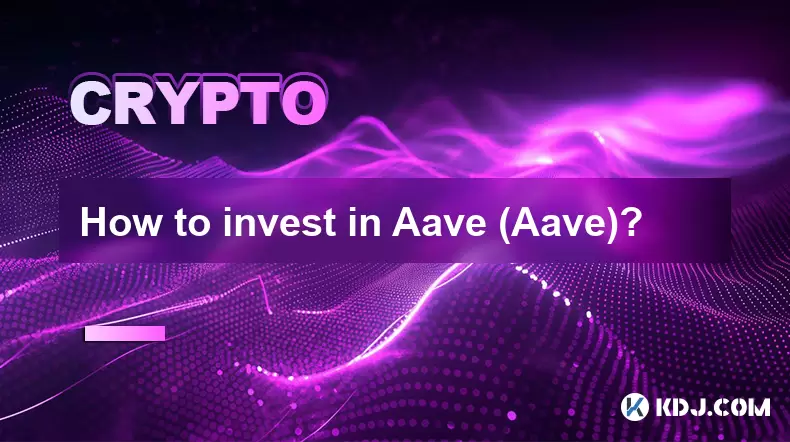-
 Bitcoin
Bitcoin $117300
1.99% -
 Ethereum
Ethereum $3884
5.89% -
 XRP
XRP $3.268
9.33% -
 Tether USDt
Tether USDt $1.000
0.02% -
 BNB
BNB $783.0
1.78% -
 Solana
Solana $173.6
3.51% -
 USDC
USDC $0.9999
0.00% -
 Dogecoin
Dogecoin $0.2193
7.00% -
 TRON
TRON $0.3380
0.30% -
 Cardano
Cardano $0.7769
5.08% -
 Stellar
Stellar $0.4350
9.36% -
 Hyperliquid
Hyperliquid $40.23
5.78% -
 Sui
Sui $3.739
6.95% -
 Chainlink
Chainlink $18.30
9.46% -
 Bitcoin Cash
Bitcoin Cash $581.7
2.11% -
 Hedera
Hedera $0.2577
5.51% -
 Ethena USDe
Ethena USDe $1.001
0.00% -
 Avalanche
Avalanche $23.08
4.23% -
 Litecoin
Litecoin $121.7
2.24% -
 UNUS SED LEO
UNUS SED LEO $8.962
-0.34% -
 Toncoin
Toncoin $3.332
1.36% -
 Shiba Inu
Shiba Inu $0.00001273
3.39% -
 Uniswap
Uniswap $10.35
6.84% -
 Polkadot
Polkadot $3.818
4.01% -
 Dai
Dai $1.000
0.01% -
 Bitget Token
Bitget Token $4.446
2.13% -
 Cronos
Cronos $0.1491
4.96% -
 Monero
Monero $255.4
-9.78% -
 Pepe
Pepe $0.00001099
4.80% -
 Aave
Aave $284.0
8.01%
What is Ethereum's Gas?
Understanding Ethereum's gas concept is essential to interact with the network effectively, estimate gas costs, set optimal gas limits, and optimize transaction strategies for efficiency.
Feb 15, 2025 at 06:26 pm

Key Points:
- Defining Ethereum's Gas
- Determining Gas Fees
- Estimating Gas Costs
- Interpreting Gas Limits
- Analyzing Gas vs. Transaction Fee
- Understanding Gas Price and Usage
- Dissecting Gas Consumption
What is Ethereum's Gas?
Ethereum, a decentralized platform for executing smart contracts, utilizes a unique mechanism known as gas. Understanding the concept of gas is crucial when interacting with the Ethereum network and its associated transactions.
Determining Gas Fees
Gas fees are an inevitable part of Ethereum transactions, representing the computational resources required to process and execute the transaction on the network. The gas fee is calculated by multiplying the amount of gas used by its corresponding price, known as the gas price.
Estimating Gas Costs
Estimating gas costs is essential to ensure that transactions are not delayed or rejected due to insufficient gas. Several factors influence gas costs, including network congestion, contract complexity, and transaction size. Users can leverage online tools or consult network data to approximate the gas cost for their intended transaction.
Interpreting Gas Limits
Every Ethereum transaction includes a gas limit parameter, specifying the maximum amount of gas the user is willing to allocate for the transaction's execution. Setting an optimal gas limit is crucial as excessive gas leads to inflated fees, while an insufficient limit may result in transaction failure.
Analyzing Gas vs. Transaction Fee
The concept of gas can be confusing due to the common misconception that gas fees constitute the entire transaction fee paid to miners. In reality, transaction fees comprise two components: the gas fee paid to miners for processing the transaction and a base fee that is burned. Understanding this distinction is essential for accurate fee estimation.
Understanding Gas Price and Usage
The gas price determines the priority level assigned to a transaction, impacting its speed and likelihood of successful inclusion in a block. Higher gas prices generally yield faster transaction processing, while lower gas prices may result in longer wait times. Users should consider the trade-off between transaction urgency and gas costs when setting the gas price.
Dissecting Gas Consumption
Gas consumption varies depending on the complexity of the transaction and the specific operations being performed. Simple transactions, such as token transfers, typically consume less gas, while complex smart contract interactions require significantly more gas. Knowledge of gas consumption patterns can help users optimize their transaction strategies and minimize unnecessary gas usage.
FAQs Related to Ethereum Gas:
- What factors affect gas fees?
Gas fees fluctuate based on network congestion, transaction complexity, and gas price. - How do I reduce gas costs?
Consider sending transactions during off-peak hours, optimizing contract efficiency, or exploring alternative layer-2 solutions. - What is a gas limit?
A gas limit sets the maximum gas allocated for a transaction, preventing excessive fees or transaction failure. - Why is it important to understand gas consumption?
Understanding gas consumption helps users estimate fees, adjust gas limits, and optimize transaction strategies for efficiency. - How does gas differ from the transaction fee?
Gas fees represent the computational resources consumed by the transaction, while the transaction fee includes both gas fees and a base fee burned by the protocol.
Disclaimer:info@kdj.com
The information provided is not trading advice. kdj.com does not assume any responsibility for any investments made based on the information provided in this article. Cryptocurrencies are highly volatile and it is highly recommended that you invest with caution after thorough research!
If you believe that the content used on this website infringes your copyright, please contact us immediately (info@kdj.com) and we will delete it promptly.
- Cold Wallet Crypto in 2025: The Future is Now, Ya'll
- 2025-08-08 05:10:13
- MAGACOIN, SOL, and ADA: A Tale of Shifting Tides in Crypto
- 2025-08-08 05:10:13
- SHIB Price, PEPE, and the Memecoin Supercycle: Who Will Reign Supreme?
- 2025-08-08 05:50:12
- Pudgy Penguins Price Prediction: Google Trends & Breakout Signals
- 2025-08-08 05:50:12
- UAE Crypto Regulation: SCA and VARA Unite to Streamline the Future of Digital Assets
- 2025-08-08 05:55:48
- MAGACOIN Finance: The Presale Phenomenon Rocking the Crypto World
- 2025-08-08 05:55:48
Related knowledge

Where can I buy UMA (UMA)?
Aug 07,2025 at 06:42pm
Understanding UMA and Its Role in Decentralized FinanceUMA (Universal Market Access) is an Ethereum-based decentralized finance (DeFi) protocol design...

What exchanges support buying IOTA (MIOTA)?
Aug 07,2025 at 09:58pm
Understanding the Role of Private Keys in Cryptocurrency SecurityIn the world of cryptocurrency, private keys are the cornerstone of ownership and con...

How to acquire Holo (HOT) tokens?
Aug 08,2025 at 05:56am
Understanding Holo (HOT) and Its EcosystemHolo (HOT) is a cryptocurrency token associated with the Holo ecosystem, which is built on the Holochain fra...

What is the best app to buy EOS?
Aug 07,2025 at 04:35pm
Understanding EOS and Its Role in the Cryptocurrency EcosystemEOS is a blockchain platform designed to support decentralized applications (dApps) with...

What platforms support buying Fantom (FTM)?
Aug 08,2025 at 01:56am
Overview of Fantom (FTM) and Its EcosystemFantom (FTM) is a high-performance, scalable, and secure layer-1 blockchain designed to overcome the limitat...

How to invest in Aave (Aave)?
Aug 08,2025 at 01:07am
Understanding Aave (AAVE) and Its Role in DeFiAave is a decentralized finance (DeFi) protocol that enables users to lend, borrow, and earn interest on...

Where can I buy UMA (UMA)?
Aug 07,2025 at 06:42pm
Understanding UMA and Its Role in Decentralized FinanceUMA (Universal Market Access) is an Ethereum-based decentralized finance (DeFi) protocol design...

What exchanges support buying IOTA (MIOTA)?
Aug 07,2025 at 09:58pm
Understanding the Role of Private Keys in Cryptocurrency SecurityIn the world of cryptocurrency, private keys are the cornerstone of ownership and con...

How to acquire Holo (HOT) tokens?
Aug 08,2025 at 05:56am
Understanding Holo (HOT) and Its EcosystemHolo (HOT) is a cryptocurrency token associated with the Holo ecosystem, which is built on the Holochain fra...

What is the best app to buy EOS?
Aug 07,2025 at 04:35pm
Understanding EOS and Its Role in the Cryptocurrency EcosystemEOS is a blockchain platform designed to support decentralized applications (dApps) with...

What platforms support buying Fantom (FTM)?
Aug 08,2025 at 01:56am
Overview of Fantom (FTM) and Its EcosystemFantom (FTM) is a high-performance, scalable, and secure layer-1 blockchain designed to overcome the limitat...

How to invest in Aave (Aave)?
Aug 08,2025 at 01:07am
Understanding Aave (AAVE) and Its Role in DeFiAave is a decentralized finance (DeFi) protocol that enables users to lend, borrow, and earn interest on...
See all articles

























































































